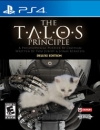I was having this discussion with some friends while enjoying some coffee at 0:32 am, because that's probably the thing you'd end up doing after watching The Revenant. Note: not hating on the movie. DiCaprio and Hardy were excellent. The bear sequence was enjoyable to watch, in a sadistic kind of way.
But enough with getting sidetracked.
The thing went as follows: we were discussing about cinema critics. My friends ended up saying that critics should be objective. I argued back: objective is something you can't achieve (yet you can come close to it), but a criticism falls under the category of subjectivism in itself. There's no such a thing as an "objective criticism", aside from making obvious statements (like, if a movie has audio issues, saying the movie has audio issues is objective). But how can we categorize whether the movie (or game, as I'm trying to bring this discussion to this theme) is "fun"? "Enjoyement value" should be a metric? Or a critic should just relegate himself to tell whether the movie works or not? But how can you analize whether a movie works or not? Should we employ an universal metric?
Was Django Unchained OST score good? Did it match with the movie? How could we discuss this thing in an objective way? In the same vein, wouldn't you prefer if a critic, while adressing objective statements regarding the status quo of the game he's reviewing, came and said "this game is simply boring" because that's how he felt playing it? That someone said "this is too hard for me and that's a negative, I'm sorry for those who enjoy hard games?". Just some examples of blunt, honest subjectivism that in my opinion would constitute better reviews, rather than "let's appease to the majority" which is what it seems with most things nowadays.
Maybe I didn't make my point across properly. Sorry if it is the case, I don't see how I could explain the question better.

















